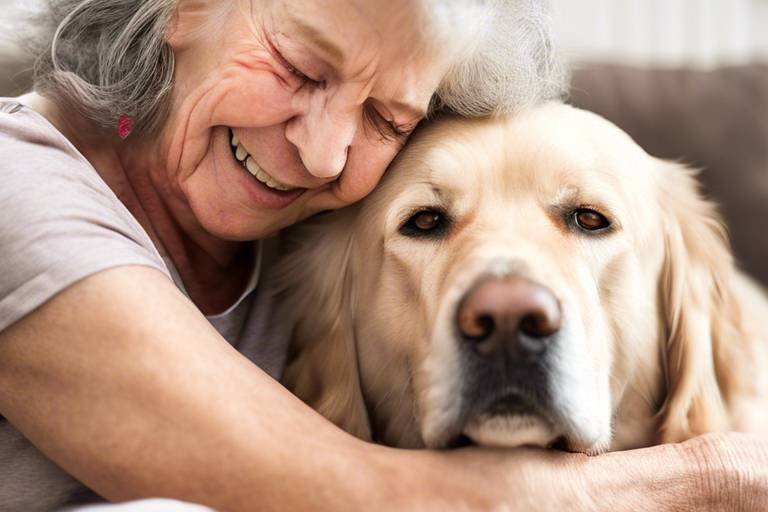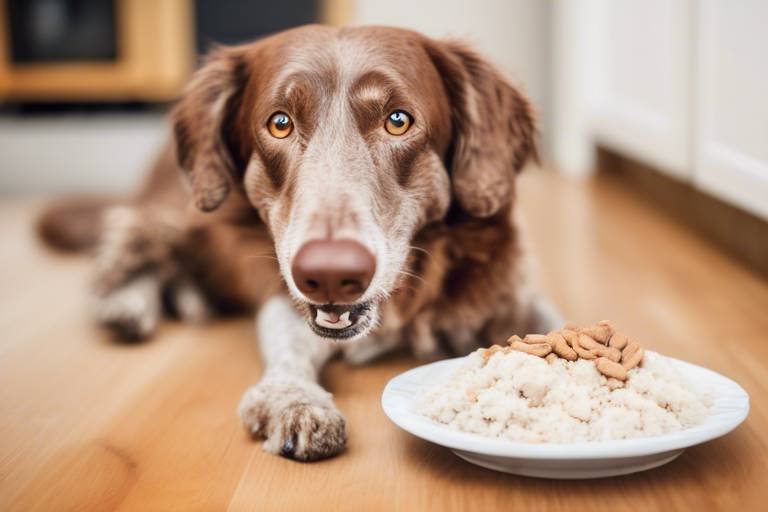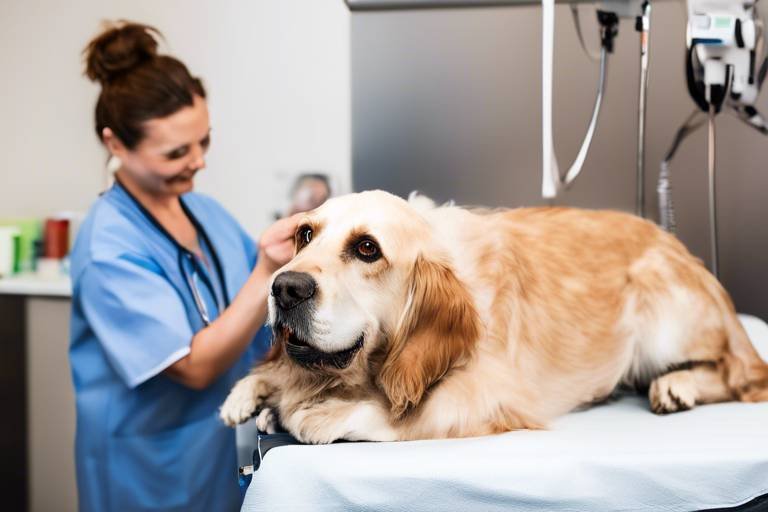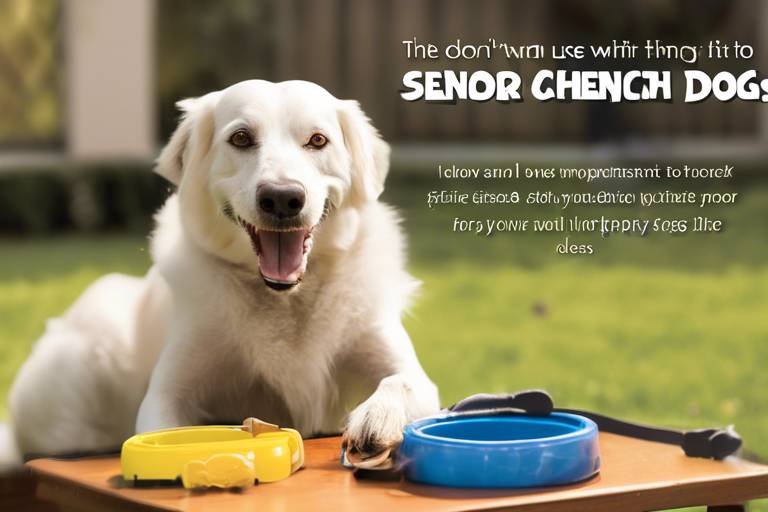The Benefits of Home Cooked Meals for Senior Pets
As our furry friends age, their nutritional needs change significantly. It’s not just about feeding them; it’s about providing them with the right fuel for their golden years. Home-cooked meals for senior pets can be a game-changer, offering a plethora of benefits that commercial pet foods often can’t match. Imagine being able to monitor every ingredient that goes into your pet's bowl, ensuring they receive the best possible nutrition tailored to their unique needs. This article dives deep into the various advantages of preparing home-cooked meals for your senior pets, from improving their health to enhancing their quality of life.
Home-cooked meals provide tailored nutrition that can meet the specific dietary needs of senior pets. By choosing ingredients for their health benefits, pet owners can create balanced diets that support longevity and vitality. Think of it this way: just like we wouldn’t fuel a high-performance car with low-quality gasoline, our pets deserve the best nutrition to keep their engines running smoothly. Fresh vegetables, lean proteins, and healthy fats can all be incorporated into their meals, providing essential nutrients that help maintain their energy levels and overall health.
One of the most significant benefits of home-cooked meals is the positive impact on digestive health. Senior pets often face gastrointestinal issues, which can lead to discomfort and a lower quality of life. By using fresh, wholesome ingredients that are easier to digest, pet owners can help reduce the likelihood of these problems. Imagine a well-oiled machine; when everything is functioning smoothly, it works better. The same goes for your pet's digestive system. A diet rich in fiber from fruits and vegetables can promote better gut health, leading to more regular and comfortable bathroom habits.
Maintaining a healthy weight is crucial for senior pets, who often struggle with obesity and its related health problems. Home cooking allows pet owners to control portion sizes and ingredient quality. This level of control is akin to having a personal trainer for your pet’s diet. You can adjust the caloric intake based on their activity level and health needs, ensuring they stay fit and active. Plus, you can avoid the hidden calories often found in commercial pet foods, which can contribute to weight gain.
For pets with food sensitivities or allergies, home cooking can be a lifesaver. By preparing meals at home, owners can identify and eliminate allergens from their senior pet's diet. This proactive approach can alleviate allergy symptoms, leading to improved comfort and overall well-being. It’s like being a detective for your pet’s health; you can experiment with different ingredients to find what works best for them. For example, if your pet has a chicken allergy, you can easily switch to turkey or fish, ensuring they still receive a nutritious meal without the risk of an allergic reaction.
When you cook at home, you have complete control over the ingredients used. This ensures that only high-quality, fresh, and safe components are included in your pet’s meals. Unlike many commercial pet foods that may contain harmful additives or low-quality fillers, homemade meals are made with love and care. You wouldn’t want to eat something you couldn’t trust, and your pet deserves the same standard. Plus, knowing exactly what goes into their food can provide peace of mind for pet owners.
Cooking for your pet can strengthen the bond between owner and animal. The act of preparing meals together fosters a deeper connection and shows love and care in a tangible way. Think of it as a shared experience; just like cooking a meal for a loved one, preparing food for your pet can be an expression of affection. It’s a chance to show them you care, and they’ll appreciate the effort in their wagging tails and happy purrs.
Home-cooked meals can be easily customized to cater to specific health concerns or preferences of senior pets. This flexibility allows for adjustments based on age, weight, and any medical conditions. For instance, if your pet has kidney issues, you can tailor their diet to be lower in protein, or if they’re recovering from surgery, you can incorporate more easily digestible foods. It’s like having a personalized nutrition plan, ensuring they get exactly what they need to thrive.
While there may be initial costs associated with home cooking, it can be more cost-effective in the long run. By avoiding expensive commercial diets, owners can save money while providing nutritious meals for their pets. Consider it an investment in your pet’s health; the savings on vet bills due to improved health can far outweigh the cost of fresh ingredients.
Research suggests that a balanced, home-cooked diet can contribute to a longer and healthier life for senior pets. Proper nutrition plays a vital role in preventing diseases and enhancing overall well-being. Just like we aim for a balanced diet to keep ourselves healthy, our pets benefit from the same principle. By investing time and effort into their meals, you’re not just feeding them; you’re potentially adding years to their life.
- What ingredients should I include in my senior pet's home-cooked meals? Focus on high-quality proteins, fresh vegetables, and healthy fats. Consult with your veterinarian for specific recommendations.
- How do I know if my pet's diet is balanced? Regular check-ups with your vet can help ensure your pet’s diet meets their nutritional needs.
- Can I use the same recipes for all my pets? No, different pets have different dietary needs. Tailor recipes to each pet's age, weight, and health condition.
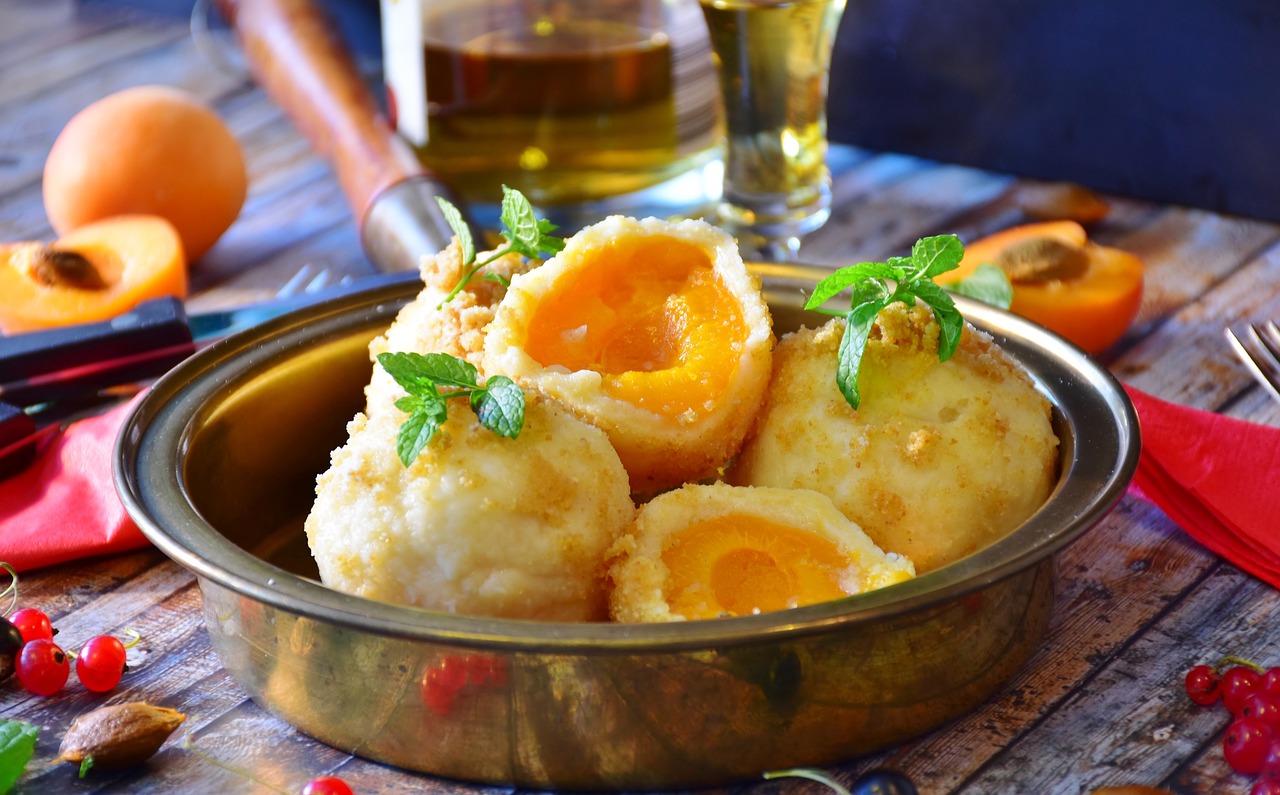
Nutritional Advantages
When it comes to our furry companions, especially senior pets, nutrition plays a pivotal role in maintaining their health and vitality. One of the most significant benefits of home-cooked meals is the ability to provide tailored nutrition that meets the unique dietary needs of older animals. Unlike commercial pet foods, which may contain fillers and artificial ingredients, home-cooked meals allow pet owners to select fresh, high-quality ingredients that are beneficial for their pets’ health.
By preparing meals at home, you can ensure that every ingredient serves a purpose. For instance, you might choose to include:
- Lean proteins such as chicken or fish, which are essential for muscle maintenance.
- Whole grains like brown rice or quinoa, providing energy and fiber.
- Fruits and vegetables such as carrots, blueberries, and spinach, which are rich in antioxidants and vitamins.
This kind of customization is crucial for senior pets, who often face various health challenges. For example, a dog with arthritis may benefit from meals rich in omega-3 fatty acids, which can help reduce inflammation. On the other hand, a cat with kidney issues might require a diet lower in protein and phosphorus. By cooking at home, you can easily adjust the ingredients to cater to these specific needs.
Moreover, home-cooked meals can help avoid potential allergens that might be present in commercial foods. Many pets develop sensitivities as they age, and by controlling what goes into their meals, you can help alleviate symptoms and improve their overall comfort. This proactive approach not only enhances their quality of life but also fosters a sense of trust between you and your pet.
In summary, the nutritional advantages of home-cooked meals for senior pets are vast. The ability to provide tailored nutrition, ensure ingredient quality, and cater to specific health needs makes home cooking a fantastic option for pet owners looking to improve their furry friends' health and well-being.
Here are some common questions pet owners have about home-cooked meals for senior pets:
- Is it safe to cook for my senior pet? Yes, as long as you research and prepare balanced meals that meet their nutritional needs.
- How can I ensure my homemade meals are balanced? Consulting with a veterinarian or a pet nutritionist can help you create balanced meals.
- Can I use leftovers from my meals for my pet? It depends on the ingredients. Always check which foods are safe for pets.
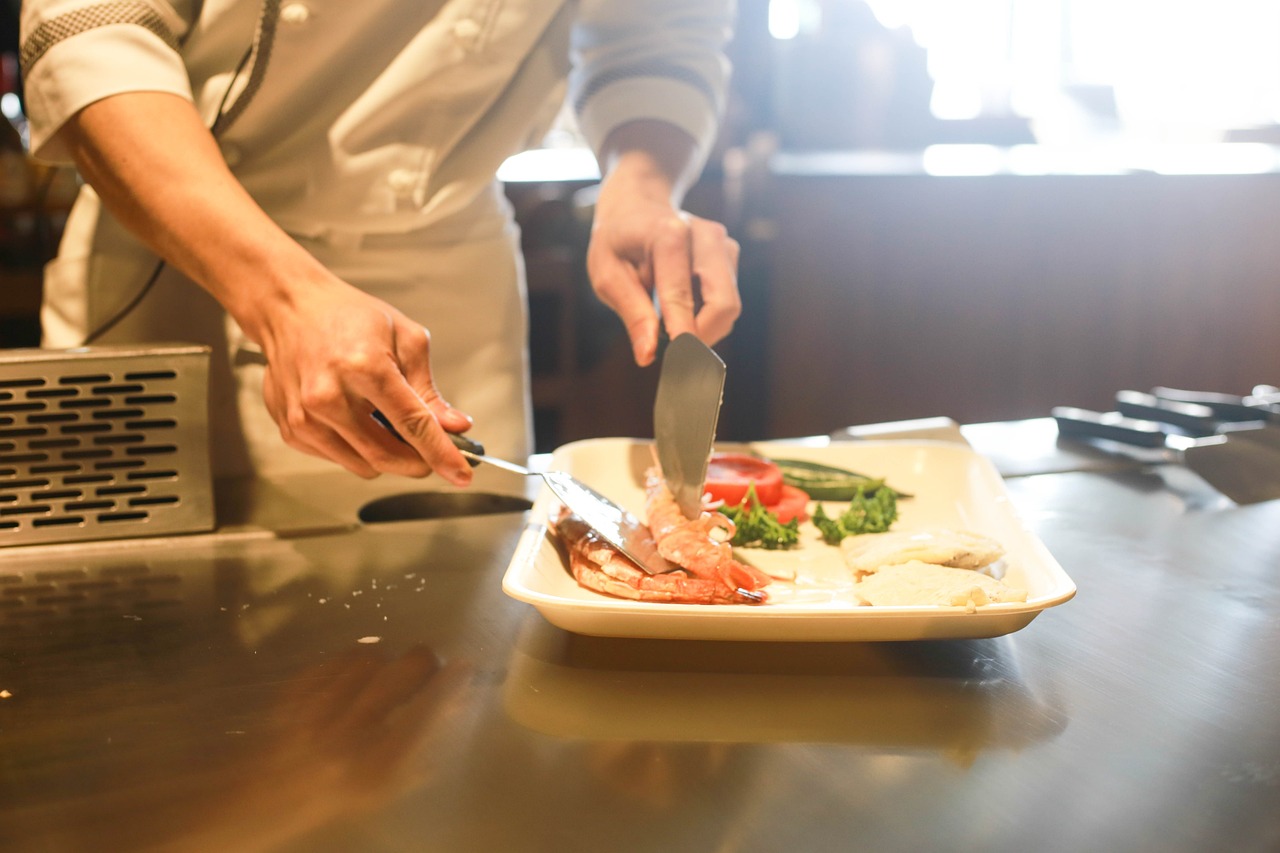
Improved Digestive Health
This article explores the advantages of preparing home-cooked meals for senior pets, including nutritional benefits, improved health, and enhanced quality of life. Discover how homemade diets can be tailored to meet your pet's specific needs.
Home-cooked meals provide tailored nutrition that can meet the specific dietary needs of senior pets. Ingredients can be selected for their health benefits, ensuring a balanced diet that supports longevity and vitality.
When it comes to our furry friends, especially the senior ones, digestive health is paramount. Just like us, pets can experience a myriad of digestive issues as they age. The beauty of home-cooked meals is that they can significantly enhance digestive health in senior pets. By using fresh, whole ingredients, you're providing a diet that is not only nutritious but also easier to digest. Think of it this way: would you rather eat a processed meal loaded with preservatives or a fresh, homemade dish? The same goes for your pets!
Fresh ingredients, such as lean meats, vegetables, and whole grains, are generally more digestible than the often-processed kibble available in stores. This reduces the likelihood of gastrointestinal issues such as bloating, constipation, or diarrhea. For example, incorporating ingredients like pumpkin or sweet potatoes can help regulate your pet's digestive system. These foods are rich in fiber, which aids in smooth digestion.
Moreover, when you prepare meals at home, you can easily adjust the recipe based on your pet's specific digestive needs. Here’s a quick overview of some ingredients that can promote better digestion:
- Pumpkin: High in fiber, it helps with both constipation and diarrhea.
- Chicken or turkey: Lean proteins that are easy on the stomach.
- Brown rice: A gentle carbohydrate that can soothe digestive distress.
- Carrots: Great source of vitamins and fiber, promoting gut health.
By cooking at home, you're not just feeding your pet; you're actively participating in their health journey. It’s a way to ensure that they receive the right nutrients while avoiding the fillers and artificial additives often found in commercial pet foods. Plus, you’ll be able to monitor how your pet reacts to different ingredients and make necessary adjustments. Imagine the peace of mind knowing exactly what your beloved companion is consuming!
Preparing meals at home allows pet owners to control portion sizes and ingredient quality, aiding in weight management. This is crucial for senior pets who often struggle with obesity and related health problems.
Home cooking enables pet owners to identify and eliminate allergens from their senior pet's diet. This can alleviate allergy symptoms and improve overall comfort and well-being for sensitive animals.
When cooking at home, pet owners have complete control over the ingredients used. This ensures that only high-quality, fresh, and safe components are included, reducing the risk of harmful additives found in commercial pet foods.
Cooking for your pet can strengthen the bond between owner and animal. The act of preparing meals together fosters a deeper connection and shows love and care in a tangible way.
Home-cooked meals can be easily customized to cater to specific health concerns or preferences of senior pets. This flexibility allows for adjustments based on age, weight, and any medical conditions.
While there may be initial costs associated with home cooking, it can be more cost-effective in the long run. By avoiding expensive commercial diets, owners can save money while providing nutritious meals for their pets.
Research suggests that a balanced, home-cooked diet can contribute to a longer and healthier life for senior pets. Proper nutrition plays a vital role in preventing diseases and enhancing overall well-being.
- Can I feed my senior pet the same food every day? It's best to vary their diet to ensure they receive a range of nutrients.
- How do I know if my home-cooked meals are balanced? Consult with a veterinarian or a pet nutritionist to create a balanced meal plan.
- Are there any foods I should avoid when cooking for my pet? Yes, avoid ingredients like onions, garlic, chocolate, and grapes, as they are toxic to pets.
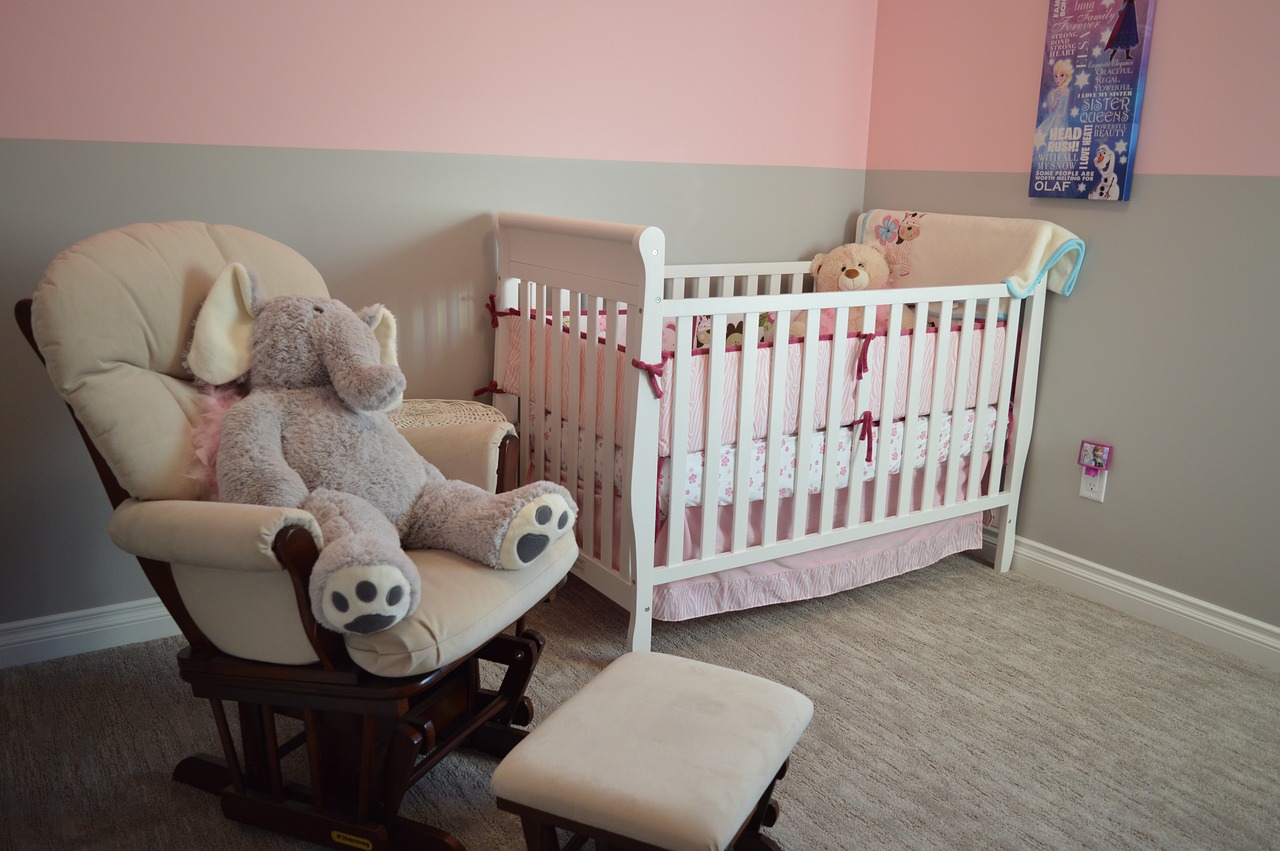
Weight Management
This article explores the advantages of preparing home-cooked meals for senior pets, including nutritional benefits, improved health, and enhanced quality of life. Discover how homemade diets can be tailored to meet your pet's specific needs.
Home-cooked meals provide tailored nutrition that can meet the specific dietary needs of senior pets. Ingredients can be selected for their health benefits, ensuring a balanced diet that supports longevity and vitality.
Homemade meals can enhance digestive health in senior pets. Fresh ingredients are easier to digest, reducing the likelihood of gastrointestinal issues and promoting overall gut health for older animals.
When it comes to our furry companions, maintaining a healthy weight is crucial, especially for senior pets. As pets age, their metabolism slows down, making them more prone to weight gain. This is where the magic of home-cooked meals comes into play. By preparing meals at home, you can have complete control over portion sizes and ingredient quality. This not only helps in managing your pet's weight but also ensures they receive a balanced diet tailored to their specific needs.
Imagine this: you’ve just prepared a delicious chicken and vegetable stew for your beloved dog. You know exactly how much chicken, carrots, and peas went into it, and you can adjust the proportions based on your pet's activity level and weight. This level of control is vital, as obesity can lead to several health problems, including diabetes, joint issues, and heart disease. In fact, studies show that overweight pets have a significantly shorter lifespan compared to their healthier counterparts.
To further illustrate the importance of weight management, consider the following table that outlines the potential health issues associated with obesity in senior pets:
| Health Issue | Description |
|---|---|
| Diabetes | A chronic condition that affects how your pet's body uses sugar. |
| Arthritis | Joint inflammation that causes pain and discomfort, exacerbated by excess weight. |
| Heart Disease | Increased fat can lead to heart problems, affecting overall health and longevity. |
| Respiratory Issues | Extra weight can put pressure on the lungs, making it difficult for pets to breathe. |
In addition to controlling portions, home-cooked meals can be tailored to include low-calorie ingredients that are rich in nutrients. For instance, incorporating vegetables like zucchini, spinach, and green beans can provide essential vitamins while keeping the calorie count low. This way, your senior pet can enjoy a hearty meal without the guilt of overindulgence.
Moreover, cooking at home allows you to avoid fillers and low-quality ingredients commonly found in commercial pet foods. By focusing on high-quality proteins and wholesome ingredients, you're not only aiding in weight management but also enhancing your pet's overall health and vitality. Remember, every bite counts when it comes to your pet's well-being!
Home cooking enables pet owners to identify and eliminate allergens from their senior pet's diet. This can alleviate allergy symptoms and improve overall comfort and well-being for sensitive animals.
When cooking at home, pet owners have complete control over the ingredients used. This ensures that only high-quality, fresh, and safe components are included, reducing the risk of harmful additives found in commercial pet foods.
Cooking for your pet can strengthen the bond between owner and animal. The act of preparing meals together fosters a deeper connection and shows love and care in a tangible way.
Home-cooked meals can be easily customized to cater to specific health concerns or preferences of senior pets. This flexibility allows for adjustments based on age, weight, and any medical conditions.
While there may be initial costs associated with home cooking, it can be more cost-effective in the long run. By avoiding expensive commercial diets, owners can save money while providing nutritious meals for their pets.
Research suggests that a balanced, home-cooked diet can contribute to a longer and healthier life for senior pets. Proper nutrition plays a vital role in preventing diseases and enhancing overall well-being.
- What ingredients should I include in my senior pet's home-cooked meals? Focus on high-quality proteins, vegetables, and healthy fats. Always consult your vet for specific dietary needs.
- Can I feed my senior pet the same meals every day? It's best to vary their diet to ensure they receive a range of nutrients. Rotate different proteins and vegetables to keep meals interesting.
- How can I tell if my pet is at a healthy weight? Consult your veterinarian for guidance. They can provide a body condition score and help you develop a weight management plan.
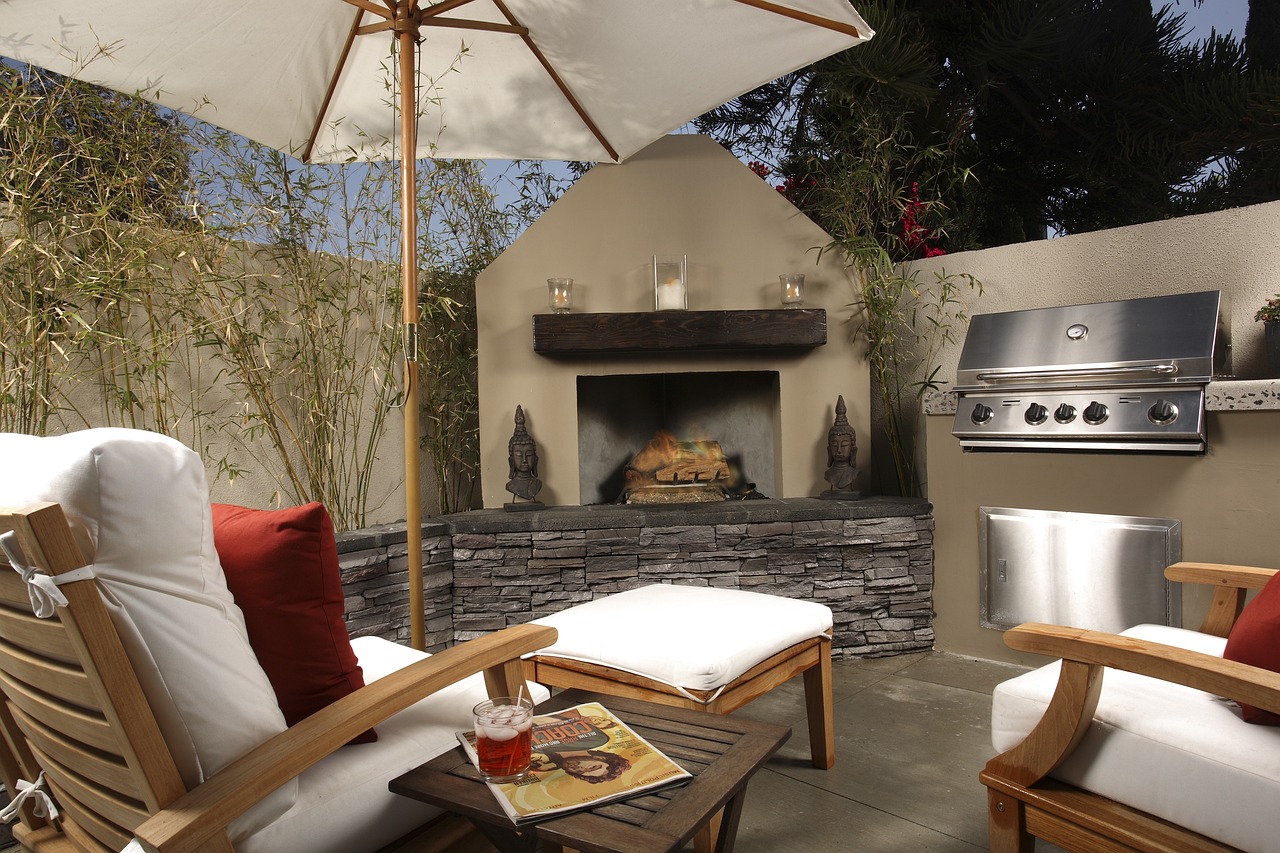
Allergy Management
When it comes to our beloved senior pets, managing allergies can feel like navigating a minefield. Many pets develop sensitivities as they age, and it’s crucial to understand how home-cooked meals can play a significant role in alleviating these issues. By preparing meals at home, you gain the ability to carefully select ingredients that suit your pet's unique needs. This not only helps in avoiding common allergens but also ensures that your furry friend enjoys a diet that promotes comfort and health.
One of the most significant advantages of cooking at home is the elimination of mystery ingredients. Commercial pet foods often contain fillers and additives that can trigger allergic reactions. When you cook for your pet, you can choose fresh, whole ingredients that you know are safe. For example, if your pet has a known sensitivity to chicken, you can easily substitute it with turkey, lamb, or even fish. This flexibility allows you to create a diet that is both nutritious and tailored to their needs.
Identifying allergens can be a daunting task, but home cooking simplifies this process. You can introduce new ingredients one at a time, monitoring your pet for any adverse reactions. This elimination diet approach is often recommended by veterinarians and can help pinpoint specific allergens that may be causing discomfort. Once you identify the culprits, you can easily avoid them in future meals, ensuring your pet remains happy and healthy.
In addition to avoiding allergens, home-cooked meals can include ingredients that actively help manage allergy symptoms. For instance, incorporating omega-3 fatty acids found in fish or flaxseed can help reduce inflammation and improve skin health. Similarly, adding probiotics can enhance gut health, which is essential for pets suffering from allergies. The table below highlights some beneficial ingredients you can consider incorporating into your senior pet's meals:
| Ingredient | Benefits |
|---|---|
| Salmon | Rich in omega-3 fatty acids, helps reduce inflammation |
| Sweet Potatoes | High in fiber, supports digestive health |
| Pumpkin | Good for digestive issues, helps with allergies |
| Quinoa | Gluten-free grain, high in protein |
| Carrots | Rich in vitamins, supports overall health |
Ultimately, cooking for your senior pet not only allows you to manage their allergies more effectively but also ensures they receive a diet filled with love and care. It’s about creating a personalized experience that enhances their quality of life. Remember, the journey of discovering what works best for your pet may take time, but the rewards are undeniably worth it. A comfortable and happy pet is the best reward for all your efforts!
- What are common allergens for senior pets? Common allergens can include chicken, beef, dairy, wheat, and soy. It's essential to monitor your pet's reactions to identify specific triggers.
- How can I tell if my pet has food allergies? Symptoms can include itching, excessive licking, gastrointestinal issues, and ear infections. If you suspect allergies, consult your veterinarian for guidance.
- Can I use store-bought ingredients for home-cooked meals? Yes, but always choose high-quality, fresh ingredients without additives or preservatives. Organic options are often a great choice.
- How do I start a home-cooked diet for my senior pet? Begin by consulting with your veterinarian to create a balanced meal plan tailored to your pet's specific needs and health conditions.

Quality Control
When it comes to the well-being of our beloved senior pets, in their diet is paramount. One of the most significant advantages of preparing home-cooked meals is the ability to choose every single ingredient that goes into their food. Unlike commercial pet foods, which often contain fillers, preservatives, and potentially harmful additives, home cooking allows you to ensure that only the best, freshest ingredients are used. Imagine being able to handpick organic vegetables, lean meats, and wholesome grains, all tailored to your pet's specific needs!
Furthermore, you can avoid the mystery of unknown ingredients that often perplex pet owners when reading food labels. Do you really know what goes into that kibble? With home cooking, you have complete transparency. You can create a safe and nutritious meal plan that caters to your pet’s dietary restrictions and preferences. This level of control is particularly beneficial for senior pets who may have specific health issues or sensitivities.
Here’s a quick rundown of the benefits of maintaining quality control over your pet’s diet:
- Freshness: Homemade meals are prepared fresh, ensuring that nutrients are preserved.
- Ingredient Integrity: You can select high-quality ingredients, avoiding harmful additives.
- Customization: Meals can be tailored to meet the unique health needs of your senior pet.
- Safety: You can avoid potential recalls associated with commercial pet foods.
Moreover, the act of cooking for your pet can be a rewarding experience. It not only gives you control over what they consume but also fosters a deeper connection between you and your furry friend. Every meal becomes a labor of love, and you can rest easy knowing that you are providing them with the best possible nutrition. So, why settle for less when you can ensure that your senior pet is receiving the utmost care through quality control in their diet?
1. Can I cook all types of food for my senior pet?
It's essential to research which foods are safe for pets. Ingredients like onions, garlic, and chocolate are toxic to dogs and cats. Always consult with your veterinarian before introducing new foods.
2. How do I know if my home-cooked meals are nutritionally balanced?
Consider working with a veterinary nutritionist to create a balanced meal plan that meets your pet's specific dietary needs.
3. Is it expensive to prepare home-cooked meals for pets?
While the initial setup might seem costly, cooking at home can be more economical in the long run, especially if you avoid premium commercial diets.
4. How often should I feed my senior pet home-cooked meals?
Feeding frequency can vary based on your pet's health, age, and activity level. It's best to consult your vet for personalized advice.

Enhanced Bonding
This article explores the advantages of preparing home-cooked meals for senior pets, including nutritional benefits, improved health, and enhanced quality of life. Discover how homemade diets can be tailored to meet your pet's specific needs.
Home-cooked meals provide tailored nutrition that can meet the specific dietary needs of senior pets. Ingredients can be selected for their health benefits, ensuring a balanced diet that supports longevity and vitality.
Homemade meals can enhance digestive health in senior pets. Fresh ingredients are easier to digest, reducing the likelihood of gastrointestinal issues and promoting overall gut health for older animals.
Preparing meals at home allows pet owners to control portion sizes and ingredient quality, aiding in weight management. This is crucial for senior pets who often struggle with obesity and related health problems.
Home cooking enables pet owners to identify and eliminate allergens from their senior pet's diet. This can alleviate allergy symptoms and improve overall comfort and well-being for sensitive animals.
When cooking at home, pet owners have complete control over the ingredients used. This ensures that only high-quality, fresh, and safe components are included, reducing the risk of harmful additives found in commercial pet foods.
Cooking for your pet can significantly strengthen the bond between owner and animal. Just think about it: when you prepare a meal, you’re not just feeding your furry friend; you’re creating a shared experience that fosters trust and love. The act of cooking together can become a cherished ritual. Imagine the joy on your pet's face when they smell the delicious aroma wafting through the kitchen!
Moreover, the time spent in the kitchen can be a wonderful opportunity to learn more about your pet's preferences. You might discover that your senior dog loves sweet potatoes or that your cat can't resist a sprinkle of catnip on their homemade dish. This personalization not only caters to their tastes but also shows them that you care deeply about their happiness.
Consider this: when you take the time to prepare a meal, you’re also engaging in a form of communication. Your pet may not speak your language, but they certainly understand love through actions. The effort you put into their meals speaks volumes about your affection.
Additionally, the process of cooking can be therapeutic for you as well. It’s a chance to unwind, get creative, and focus on something positive. As you chop fresh ingredients and mix them together, you’re not just making dinner; you’re crafting a bond that can last a lifetime.
In summary, the act of preparing home-cooked meals is much more than just feeding your pet. It’s about creating memories, enhancing your relationship, and ensuring that your senior pet feels cherished and valued. So, why not roll up your sleeves and start cooking? Your furry friend will thank you with every wag of their tail or purr of contentment.
Home-cooked meals can be easily customized to cater to specific health concerns or preferences of senior pets. This flexibility allows for adjustments based on age, weight, and any medical conditions.
While there may be initial costs associated with home cooking, it can be more cost-effective in the long run. By avoiding expensive commercial diets, owners can save money while providing nutritious meals for their pets.
Research suggests that a balanced, home-cooked diet can contribute to a longer and healthier life for senior pets. Proper nutrition plays a vital role in preventing diseases and enhancing overall well-being.
- What ingredients should I include in my senior pet's home-cooked meals? Focus on lean proteins, vegetables, and healthy grains. Always consult with your vet for specific dietary needs.
- How can I ensure my home-cooked meals are nutritionally balanced? Consider consulting a veterinary nutritionist to create a balanced meal plan tailored to your pet's needs.
- Are there any foods I should avoid when cooking for my senior pet? Yes, avoid ingredients like onions, garlic, chocolate, and anything toxic to pets.
- Can I switch my pet to a home-cooked diet gradually? Absolutely! Gradually introduce home-cooked meals to avoid digestive upset.
- How can I store leftover home-cooked meals for my pet? Store in airtight containers in the refrigerator for up to three days, or freeze for longer storage.

Customizable Diets
This article explores the advantages of preparing home-cooked meals for senior pets, including nutritional benefits, improved health, and enhanced quality of life. Discover how homemade diets can be tailored to meet your pet's specific needs.
Home-cooked meals provide tailored nutrition that can meet the specific dietary needs of senior pets. Ingredients can be selected for their health benefits, ensuring a balanced diet that supports longevity and vitality.
Homemade meals can enhance digestive health in senior pets. Fresh ingredients are easier to digest, reducing the likelihood of gastrointestinal issues and promoting overall gut health for older animals.
Preparing meals at home allows pet owners to control portion sizes and ingredient quality, aiding in weight management. This is crucial for senior pets who often struggle with obesity and related health problems.
Home cooking enables pet owners to identify and eliminate allergens from their senior pet's diet. This can alleviate allergy symptoms and improve overall comfort and well-being for sensitive animals.
When cooking at home, pet owners have complete control over the ingredients used. This ensures that only high-quality, fresh, and safe components are included, reducing the risk of harmful additives found in commercial pet foods.
Cooking for your pet can strengthen the bond between owner and animal. The act of preparing meals together fosters a deeper connection and shows love and care in a tangible way.
One of the most significant advantages of home-cooked meals for senior pets is the customizability of their diets. Unlike commercial pet foods, which often have a one-size-fits-all approach, home cooking allows you to tailor meals to your pet's unique health needs and preferences. For instance, if your senior dog is diagnosed with kidney issues, you can easily adjust the protein content in their meals to match the veterinarian's recommendations.
Moreover, you can incorporate specific ingredients that cater to your pet's taste buds. Some pets may prefer chicken over beef or have a fondness for certain vegetables. By cooking at home, you can mix and match ingredients to create meals that not only meet nutritional requirements but also satisfy your pet's palate. This level of customization can lead to a more enjoyable eating experience for your furry friend.
In addition, you can adjust the diet based on your pet's age, weight, and any medical conditions they may have. For example:
| Health Concern | Dietary Adjustment |
|---|---|
| Obesity | Lower calorie ingredients, controlled portion sizes |
| Diabetes | Low-glycemic index foods, high fiber content |
| Allergies | Elimination of known allergens, introduction of hypoallergenic ingredients |
| Joint Issues | Inclusion of anti-inflammatory foods like fish oil or turmeric |
This flexibility not only ensures that your pet receives the best possible nutrition but also empowers you as a pet owner. You can experiment with different recipes and ingredients, finding what works best for your beloved companion. By being proactive in your pet's diet, you're enhancing their quality of life and potentially extending their lifespan.
While there may be initial costs associated with home cooking, it can be more cost-effective in the long run. By avoiding expensive commercial diets, owners can save money while providing nutritious meals for their pets.
Research suggests that a balanced, home-cooked diet can contribute to a longer and healthier life for senior pets. Proper nutrition plays a vital role in preventing diseases and enhancing overall well-being.
- Can I use regular human food for my pet's meals? While some human foods are safe for pets, it's essential to avoid ingredients that are toxic to them, such as onions, garlic, and chocolate. Always consult with your veterinarian before introducing new foods.
- How do I know what ingredients to use? Researching pet nutrition or consulting with a veterinarian or a pet nutritionist can help you determine the best ingredients for your senior pet.
- Are there any risks associated with home-cooked meals? Yes, there can be risks if the diet is not balanced. It's crucial to ensure that your pet's meals include all necessary nutrients and vitamins.
- How often should I change my pet's diet? You should adjust your pet's diet as they age or if their health conditions change. Regular check-ups with your veterinarian can guide these changes.

Cost-Effectiveness
When it comes to feeding our beloved senior pets, the of home-cooked meals can be a surprising revelation. At first glance, many pet owners might assume that preparing meals at home is more expensive than simply purchasing pre-packaged pet food. However, a closer look reveals that the opposite can often be true. By taking control of what goes into your pet’s meals, you can not only save money in the long run but also provide healthier options tailored to their unique needs.
One of the primary advantages of home cooking is the ability to buy ingredients in bulk. This is especially beneficial if you plan to cook larger batches of food that can be frozen for later use. For instance, purchasing whole grains, vegetables, and proteins in bulk can significantly reduce your overall costs. Plus, you'll have the added bonus of knowing exactly what your pet is consuming, avoiding the hidden costs associated with low-quality commercial foods.
To illustrate this point, let’s consider a simple comparison between the costs associated with commercial pet food and home-cooked meals:
| Item | Commercial Pet Food Cost (Monthly) | Home-Cooked Meal Cost (Monthly) |
|---|---|---|
| High-Quality Dry Food | $60 | $40 |
| Wet Food | $50 | $30 |
| Supplements | $20 | $10 |
| Total | $130 | $80 |
As you can see from the table, the monthly cost of home-cooked meals can be significantly lower than that of commercial pet food. This is especially important for senior pets, who may require special diets that are often more expensive when purchased as pre-packaged options. By preparing meals at home, you can customize their diet without breaking the bank.
Moreover, home cooking allows you to avoid the costs associated with veterinary visits due to diet-related health issues. Senior pets are often prone to various ailments, and poor nutrition can exacerbate these problems. By investing in a nutrient-rich homemade diet, you may reduce the need for expensive treatments and medications, ultimately saving you money in the long run.
In conclusion, while there may be some initial setup costs for home cooking—such as purchasing cookware or ingredients—the long-term savings and benefits far outweigh these expenses. Not only can you provide your senior pet with a delicious and nutritious diet, but you can also enjoy peace of mind knowing that you’re making a cost-effective choice that promotes their health and happiness.
- Is it really cheaper to cook for my pet at home? Yes, cooking at home can often be more cost-effective than buying commercial pet foods, especially when considering the long-term health benefits.
- What ingredients should I use for home-cooked meals? Focus on high-quality proteins, whole grains, and fresh vegetables. Always consult your vet for specific dietary needs.
- Can I freeze homemade pet food? Absolutely! Freezing in portions can help you save time and money while ensuring your pet always has a fresh meal ready.
- Are there any risks associated with home-cooked meals? Yes, it's essential to ensure that meals are balanced and meet your pet's nutritional needs. Consulting with a veterinarian is recommended.
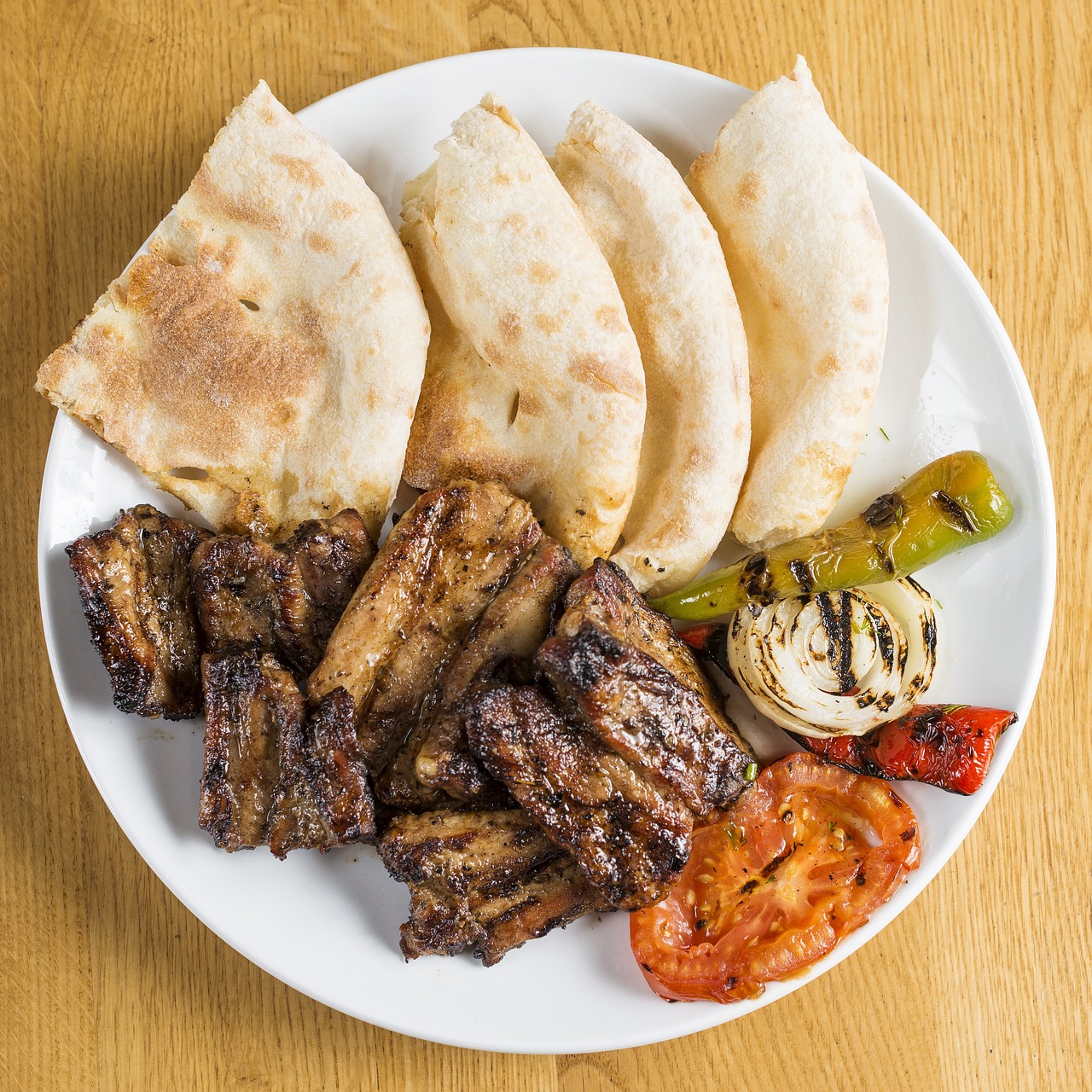
Longer Lifespan
This article explores the advantages of preparing home-cooked meals for senior pets, including nutritional benefits, improved health, and enhanced quality of life. Discover how homemade diets can be tailored to meet your pet's specific needs.
Home-cooked meals provide tailored nutrition that can meet the specific dietary needs of senior pets. Ingredients can be selected for their health benefits, ensuring a balanced diet that supports longevity and vitality.
Homemade meals can enhance digestive health in senior pets. Fresh ingredients are easier to digest, reducing the likelihood of gastrointestinal issues and promoting overall gut health for older animals.
Preparing meals at home allows pet owners to control portion sizes and ingredient quality, aiding in weight management. This is crucial for senior pets who often struggle with obesity and related health problems.
Home cooking enables pet owners to identify and eliminate allergens from their senior pet's diet. This can alleviate allergy symptoms and improve overall comfort and well-being for sensitive animals.
When cooking at home, pet owners have complete control over the ingredients used. This ensures that only high-quality, fresh, and safe components are included, reducing the risk of harmful additives found in commercial pet foods.
Cooking for your pet can strengthen the bond between owner and animal. The act of preparing meals together fosters a deeper connection and shows love and care in a tangible way.
Home-cooked meals can be easily customized to cater to specific health concerns or preferences of senior pets. This flexibility allows for adjustments based on age, weight, and any medical conditions.
While there may be initial costs associated with home cooking, it can be more cost-effective in the long run. By avoiding expensive commercial diets, owners can save money while providing nutritious meals for their pets.
Research suggests that a balanced, home-cooked diet can contribute to a longer and healthier life for senior pets. Proper nutrition plays a vital role in preventing diseases and enhancing overall well-being. By focusing on high-quality, fresh ingredients, pet owners can ensure their furry friends receive the essential nutrients needed for optimal health.
Consider this: when we eat well, we feel better, and the same goes for our pets. A diet rich in vitamins, minerals, and wholesome proteins can help stave off common ailments associated with aging, such as arthritis, heart disease, and obesity. It’s like giving your pet a fighting chance against the wear and tear of time.
To illustrate the impact of nutrition on pet longevity, here’s a simple table summarizing key nutrients and their benefits:
| Nutrient | Benefit |
|---|---|
| Omega-3 Fatty Acids | Reduces inflammation and supports joint health |
| Antioxidants | Protects cells from damage and boosts the immune system |
| High-Quality Protein | Maintains muscle mass and supports overall body function |
| Fiber | Promotes healthy digestion and prevents constipation |
When you prepare your pet’s meals at home, you’re not just feeding them; you’re investing in their future. It’s a way of saying, “I care about your health and happiness.” Many pet owners have reported noticeable improvements in their senior pets' energy levels and overall demeanor after switching to home-cooked diets. Can you imagine the joy of seeing your beloved companion thrive in their golden years?
- What ingredients should I include in my senior pet's meals? Focus on lean proteins, vegetables, and healthy fats. Always consult with your vet for specific recommendations.
- Can I feed my senior pet the same food every day? Variety is key! Mixing different ingredients can help provide a balanced diet and prevent boredom.
- How do I know if my pet is getting enough nutrients? Regular vet check-ups and blood tests can help monitor your pet's health and nutritional needs.
- Are there any foods I should avoid? Yes, some human foods are toxic to pets, such as chocolate, onions, and grapes. Always do your research before introducing new foods.
Frequently Asked Questions
- What are the main nutritional benefits of home-cooked meals for senior pets?
Home-cooked meals allow you to tailor the nutrition specifically to your senior pet's needs. You can choose fresh, high-quality ingredients that provide essential vitamins and minerals, ensuring a balanced diet that promotes longevity and vitality.
- How can home-cooked meals improve my senior pet's digestive health?
Fresh ingredients in homemade meals are generally easier to digest compared to processed commercial pet foods. This can help reduce gastrointestinal issues, promote better gut health, and keep your senior pet feeling comfortable and happy.
- Can cooking at home help with my senior pet's weight management?
Absolutely! When you prepare meals at home, you have complete control over portion sizes and ingredient quality. This is crucial for managing your pet's weight, especially since senior pets are often more prone to obesity and its associated health problems.
- How does home cooking help with allergy management in senior pets?
By cooking at home, you can easily identify and eliminate potential allergens from your pet's diet. This personalized approach can alleviate allergy symptoms and enhance your pet's overall comfort and well-being.
- What quality control measures can I take when cooking for my pet at home?
When you cook at home, you have full control over the ingredients used in your pet's meals. This means you can ensure that only high-quality, fresh, and safe components are included, significantly reducing the risk of harmful additives often found in commercial pet foods.
- Will cooking for my pet help strengthen our bond?
Yes! The act of preparing meals for your pet can create a deeper connection between you both. It shows love and care in a tangible way, and the shared experience of cooking can enhance your relationship.
- Can I customize my senior pet's diet with home-cooked meals?
Definitely! Home-cooked meals offer the flexibility to adjust ingredients based on your pet's specific health concerns, preferences, and dietary requirements. This customization is crucial for catering to their unique needs as they age.
- Is home cooking cost-effective for pet owners?
While there might be some initial costs involved in setting up your home cooking routine, it can be more cost-effective in the long run. By avoiding expensive commercial diets, you can save money while still providing nutritious meals for your pets.
- Can a home-cooked diet contribute to a longer lifespan for my senior pet?
Research indicates that a balanced, home-cooked diet can promote a longer and healthier life for senior pets. Proper nutrition plays a vital role in preventing diseases and enhancing overall well-being, giving your furry friend the best chance at a happy life.



